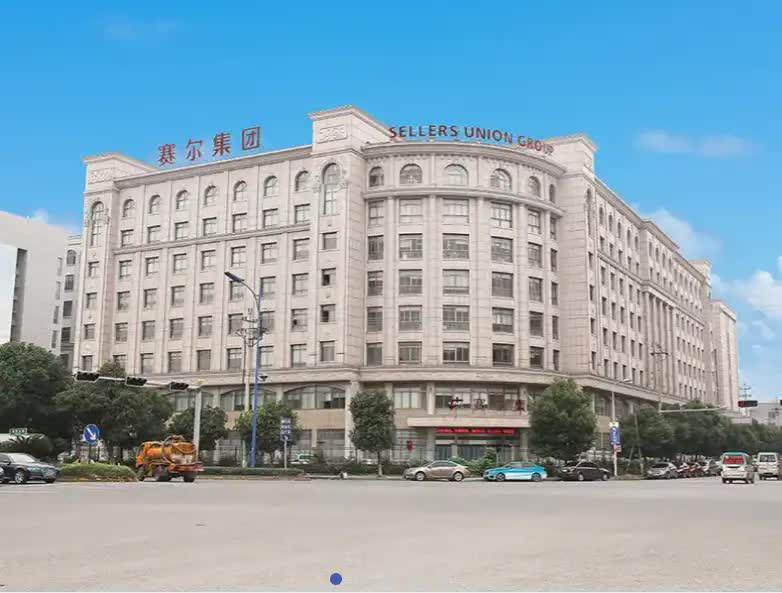Getting around Minimum Order Quantities (MOQs) in China's huge factory network can decide if your buying plan works or fails. Whether you're a small business trying out the market or a big buyer cutting costs, knowing how MOQs work is key to getting good prices, keeping suppliers happy, and growing smoothly. This guide shares real-world tips to talk down, handle, and beat MOQ problems in any field—helping your business succeed in China's tricky trade scene.
What Is MOQ and Why Does It Matter in China?
In China's factory hubs, MOQ isn't just a number—it shows how production costs, supplier skills, and industry rules work. For buyers, MOQs set entry limits, price levels, and how flexible your supply chain can be. Here's why MOQs are a must in China, how they change your profits, and what makes suppliers set their limits, from material costs to what different industries need.
What MOQ Means and Why It's Key in Trade
Minimum Order Quantity (MOQ) is a big deal in global trade, especially with China suppliers. It means the fewest items a seller will sell at once. MOQs matter because they decide if a deal makes sense, especially for smaller businesses. Sellers set MOQs to cover costs and earn money. For buyers, knowing how to work with MOQs can save cash and build better ties with suppliers.
How MOQ Changes Prices and Profits
Every MOQ hides a balance of size, speed, and what keeps suppliers going. Learn how buying materials in bulk, industry habits, and factory costs shape prices—and why hitting MOQs often gets you discounts that help your earnings.
Factory Costs & Making More for Less
MOQs often depend on how much it costs to make goods. Sellers need to hit certain amounts to make each piece cheaper. If an order is too small, the seller might lose money or charge more per item, hurting their profits.
What Suppliers Can Do & Getting Materials
China sellers often buy materials in bulk to save money. Small orders mess up this plan, forcing them to change prices. Some materials only come in big amounts, which also changes MOQs.
Rules for Different Industries
Each industry has its own MOQ standards. Electronics might need bigger MOQs because making them is hard and parts cost a lot. Clothing sellers might be more flexible, depending on fabric and designs.
How Can You Get Better MOQs from Suppliers?
MOQs don't have to be fixed. Smart buyers use good relationships, flexible deals, and smart ordering to lower limits without losing profits. Learn how splitting orders, consignment deals, and bundling products can match what sellers need with your budget. See why showing you'll grow long-term and working with buying helpers—like China's expert trading firms—can bend standard MOQ rules.
Making Strong Ties with Suppliers
Trust beats one-time deals in China. Sellers who see you as a partner—not just a buyer—are more likely to ease MOQ rules. Here's how to build trust by being clear, promising growth, and talking often.
Why Long-Term Deals Matter
Building trust with sellers helps you get better terms. Long deals show you're reliable and both sides can grow, making sellers more open to smaller MOQs.
Showing You'll Grow Big Later
Sellers may lower MOQs if they think you'll order more later. Tell them your growth plans to push them to accept smaller first orders.
Flexible Ways to Order
When MOQs are too high, smart fixes exist. Try staged deliveries, consignment stock, and mixing products to meet seller needs without piling up stock or hurting cash flow.
Mixing Different Products in One Order
One trick is ordering different types of items together to hit the MOQ without too much of one thing. This keeps the seller's costs low while giving buyers variety.
Splitting Orders & Consignment Deals
Phased orders break a big order into smaller parts sent over time. Consignment lets buyers pay only after selling goods, cutting early costs.
Using Trading Firms & Helpers
Buying agents are MOQ problem-solvers. By grouping orders from many buyers, firms like Sellers Union help small businesses get bulk prices without hitting MOQs alone—great for testing new markets or small runs.
How Buying Agents Lower MOQs
Agents or trading firms act as middlemen, often mixing orders from many clients to meet MOQs together. This helps small firms start in China without big orders.
Example: How Sellers Union Fixes MOQ Issues
Sellers Union, started in 1997 in Ningbo, is known for helping buyers work China's wholesale market well. With 20+ years in trade and over $500 million in sales in 2019, Sellers Union finds goods in many categories while adding services like custom packaging and paperwork. They're experts at fixing MOQs with smart buying plans for each client.
Beating MOQ Problems in Different Fields
From gadgets to clothes, MOQ hurdles change a lot. Costly tooling fields need shared runs, while fabric buyers can use bulk deals. Custom OEM orders? Start with samples and grow slowly. This part shows fixes for each field, helping you match plans to your product type.
Electronics & Devices
Circuit boards cost a lot. With MOQs often tied to pricey molds, learn how small-batch experts, shared parts, and group buys can make gadget buying work for growing brands.
High MOQ Trends & Fixes
Electronics often need big MOQs due to costly tools and parts. Buyers can team with small-batch sellers or use group buys (GPOs) to help.
Clothes & Fabrics
Fabric MODs shape clothing costs. Learn to lower limits by picking common fabrics, joining bulk buys, or using leftover fabrics—without losing design quality.
Buying Fabric & Bulk Savings
In clothing, fabric buys decide MOQs. Buyers can push for lower MOQs by choosing standard fabrics or teaming with others for bulk buys.
Custom Goods & OEM Making
Custom work shouldn't mean huge MOQs. Smart buyers start with samples, then grow step-by-step, matching orders to real demand.
Trying Samples First
For custom or OEM goods, test samples before big orders. This checks quality and demand without overspending.
Growing Step by Step
Start small and order more as sales grow. This cuts risk while building trust with sellers over time.
How to Make Your Supply Chain Work with MOQs
Balancing MOQs and lean stock is tricky. See how Just-in-Time (JIT) systems, guessing demand, and shipping partners can cut storage costs and dead stock. Learn why grouping shipments or using full-service agents—like Sellers Union—can turn high MOQs into smooth, cheap workflows.
Handling Stock Well to Manage MOQs
Good stock control is key for firms wanting smooth supply chains and smart MOQ handling. A neat stock system cuts extra costs and avoids too much or too little stock. Using smart stock software helps track levels, guess demand, and auto-order. This ensures MOQs are met without extra costs.
Another trick is sorting stock by demand and profit. Focus on top-selling, high-profit items to use resources well while hitting MOQs. A Just-in-Time (JIT) method also smooths work by cutting extra stock and matching making to real demand.
Working with Shipping Partners to Save
Teaming with good shippers is another way to smooth supply chains with MOQs. Shipping firms can group orders, cutting costs and ensuring fast delivery. This helps small firms that can't meet big MOQs alone.
Shippers also offer extras like storage, packing, and delivery, making supply chains smoother. Using these lets firms focus on their work while handling big orders easily.
Why Pick Sellers Union as Your China Supplier?
With years in Ningbo's trade world, Sellers Union shows MOQ flexibility and supply chain skill. Their $500M+ yearly sales, OEM/ODM know-how, and strict checks give buyers a full-package fix. This case study shows how their seller network, clear prices, and order grouping break MOQ walls for global buyers.
What Sellers Union Does Best
Working China's supply chain needs a trusted partner with deep market smarts and strong seller links.
Big Seller Network & Good Prices
Sellers Union began in 1997 in Ningbo port. Over time, it built a wide seller net in many fields, offering great prices on lots of goods. With over $500 million in 2019 sales, Sellers Union knows China's market well.
MOQ Flexibility & Custom Help
A top Sellers Union trait is MOQ flexibility. They get small firms' struggles and tweak deals to fit smaller orders without losing quality or value. They also help with custom packaging and designs, matching goods to your brand.
Quality Checks & Inspections
To keep standards high, Sellers Union gives full quality checks. These include pre-ship checks, factory visits, and product tests to ensure goods meet needs. This quality focus has earned them trust with both local sellers and global buyers.
How Sellers Union Makes MOQs Easier
For firms stuck with high MOQs, Sellers Union offers smart fixes to cut costs and smooth buying.
Tailored OEM/ODM Making Help
Sellers Union shines in OEM (Original Equipment Manufacturer) and ODM (Original Design Manufacturer) making, fitting each client's needs. This includes creating new brand projects with unique shapes, materials, colors, sizes, prints, and packs.
Buying Agent Skills in MOQ Talks
As a top buying agent in Yiwu with 1,200+ staff, Sellers Union handles all China import steps. They're pros at getting better MOQs by mixing orders or using long seller ties.
Clear Prices & Cost Cuts
Honesty is key for Sellers Union. They give clear prices and work hard to cut costs with smart buying plans. With 20+ years in trade, they ensure clients get top value while meeting MOQs well.
By using smart stock tricks and partners like Sellers Union, firms can handle China's market well.
End Notes
Getting and handling Minimum Order Quantities (MOQs) in China is key for firms wanting to save costs and keep sellers happy long-term. By using smart talk tricks, strong partnerships, and expert buyers like Sellers Union, firms can solve MOQ issues easier. Custom fixes like staged orders, product mixing, and consignment deals help meet MOQs without wasting money.
Adapting plans to fit field needs—like gadgets, clothes, or custom makes—keeps firms competitive while keeping quality. Plus, smart stock control and shipping partners smooth supply chains, making MOQs easier to handle.
Common MOQ Questions in China
What Are Normal MOQs for Different Goods?
MOQs change a lot by field and product. Electronics often need bigger MOQs due to complex making and pricey parts. Clothing sellers may be more flexible, especially with common fabrics. Custom or OEM goods usually need sample runs before full making. Knowing these differences helps firms plan orders well.
Can I Get Samples Before a Full Order?
Yes, most China sellers let buyers check samples first. This is key for custom or OEM goods where quality matters. Samples test quality, seller trust, and help decide on bigger orders. But ask about sample costs and shipping fees first to avoid surprises.
What If I Miss the MOQ?
Missing MOQs can cause problems. Sellers may charge more per item or refuse orders if it hurts their costs. Buyers might face delays or fewer custom choices if amounts are too low. To avoid this, talk openly with sellers about issues and try flexible fixes like staged orders or product mixing.
By tackling common MOQ worries and using smart plans for each business, firms can do well in China's market and grow steady.
Post time: Jun-20-2025





